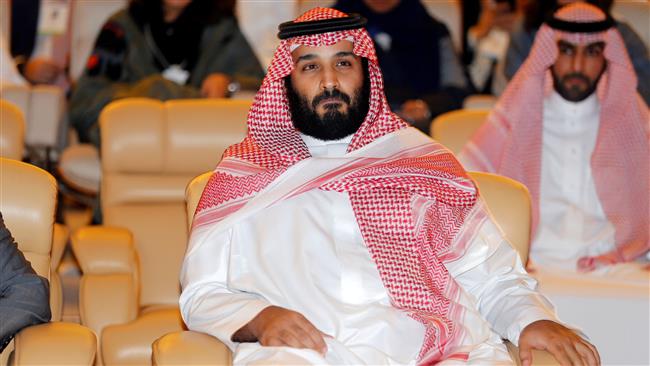
RNA - Saudi Crown Prince Mohammed bin Salman alleged on Tuesday that Iran was involved in supplying weapons to the Houthis, which he said “is a direct military aggression” by Iran against Saudi Arabia.
He made the claim in a telephone conversation with British Foreign Secretary Boris Johnson, according to the official Saudi Press Agency (SPA).
Bin Salman also said the alleged provision of weapons to the Houthis could constitute “an act of war” against Saudi Arabia.
The Houthi movement, which has been fighting back a Saudi-led coalition with allied army troops and tribal fighters, fired a missile at the King Khalid International Airport in northeastern Riyadh on Saturday. Saudi Arabia said it intercepted the missile mid-air.
In a statement on Sunday, the Saudi-led coalition, claimed the Houthis were under Iran’s “direct command.”
The Iranian Foreign Ministry rejected the coalition’s “destructive, irresponsible, provocative and baseless” allegation, saying Yemenis had shown an “independent” reaction to the Saudi military attacks on their country.
Iranian defense officials, too, denied the allegations, saying Iran had no means of transferring arms to Yemen.
Separately, in an interview with the US news network CNN on Monday, Saudi Foreign Minister Adel al-Jubeir repeated the accusation against Iran.
“It was an Iranian missile, launched by Hezbollah, from territory occupied by the Houthis in Yemen,” he claimed, adding that Saudi Arabia reserved the right to “respond in the appropriate manner at the appropriate time.”
That belligerent rhetoric has sparked speculation that Saudi Arabia may take military action against Iran.
Speaking in Damascus on Monday, Ali Akbar Velayati, a senior adviser to Leader of the Islamic Revolution Ayatollah Seyyed Ali Khamenei, advised Saudi authorities not to venture into crisis.
“Saudi Arabia’s government and its officials had better think of their interests more and not get themselves entangled in incidents of their own making,” Velayati said.
Israel teams up with Saudi Arabia
Meanwhile, the Israeli regime, which has recently been jumping at opportunities to side with Arab countries against Iran, has reportedly instructed its embassies in other countries to lobby with their hosts against Iran and the Lebanese resistance movement Hezbollah.
Israel’s Channel 10 reported on Monday that following Saad Hariri’s announcement of resignation as Lebanon’s prime minister, the Israeli foreign ministry had sent a directive to all of the regime’s embassies to appeal to their host countries to oppose the alleged involvement of Iran and Hezbollah in Lebanon’s domestic politics.
Hariri, a long-time Riyadh ally, announced his resignation on Saturday in a televised speech from Saudi Arabia, in a move largely seen as made under Saudi influence. Hariri accused Iran and Hezbollah of meddling in Arab countries’ affairs. The Lebanese government has refused to consider his resignation, suggesting that a sovereign decision like that has to be made voluntarily.
The Israeli foreign ministry directive also urged Israeli ambassadors to convey a message of support for Saudi Arabia amid its war on Yemen, which has killed upward of 12,000 civilians and spread cholera and famine in the Arab world’s most impoverished country.
“The events in Lebanon and the launching of a ballistic missile at the international airport in Riyadh show that increased pressure is required on Iran and Hezbollah,” the foreign ministry reportedly said in the directive.
847/940